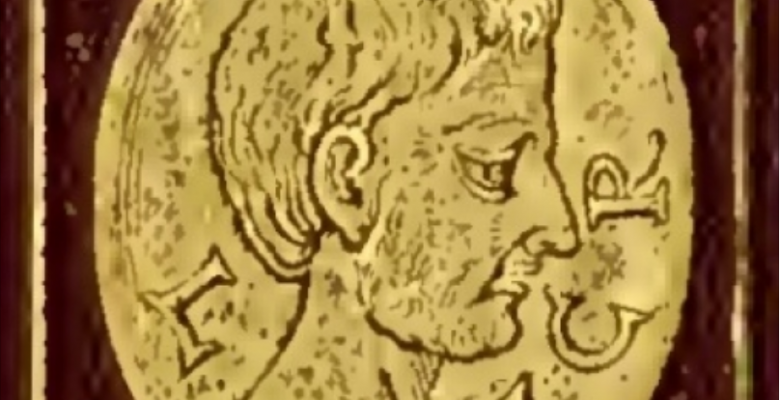Lucretius Today Podcast Episode 211 is Now Available
Listen to “Episode 211 – Cicero's On Ends – Book Two – Part 18 – Battle Of The Images” on Spreaker.
Welcome to Episode 211 of Lucretius Today. This is a podcast dedicated to the poet Lucretius, who wrote “On The Nature of Things,” the most complete presentation of Epicurean philosophy left to us from the ancient world. Each week we walk you through the Epicurean texts, and we discuss how Epicurean philosophy can apply to you today. If you find the Epicurean worldview attractive, we invite you to join us in the study of Epicurus at EpicureanFriends.com, where you will find a discussion thread for each of our podcast episodes and many other topics.
This week we continue our discussion of Book Two of Cicero’s On Ends, which is largely devoted Cicero’s attack on Epicurean Philosophy. Going through this book gives us the opportunity to review those attacks, take them apart, and respond to them as an ancient Epicurean might have done, and much more fully than Cicero allowed Torquatus, his Epicurean spokesman, to do.
Follow along with us here: Cicero’s On Ends – Complete Reid Edition. Check any typos or other questions against the original PDF which can be found here.
This week we move into Section XXI:
XXI. You must either blame these examples, Torquatus, or must abandon your advocacy of pleasure. But what kind of advocacy is this, or what sort of case can you make out for pleasure, which will never be able to call witnesses either to fact or to character from among men of distinction? While we are wont to summon as our witnesses from the records of the past men whose whole life was spent in noble exertion, who would never be able to listen to the name of pleasure, on the other hand in your debates history is silent. I have never heard that in any discussion carried on by Epicurus the names of Lycurgus, Solon, Miltiades, Themistocles, Epaminondas were mentioned, men who are ever on the lips of all the other philosophers. Now however, seeing that we Romans also have begun to handle these subjects, what fine and great men will Atticus produce for us from his stores! Is it not better to say something of these men than to talk through such ponderous tomes about Themista? Let us allow such things to be characteristic of Greeks; though it is from them that we derive philosophy and all liberal arts; but still there are things which are not permitted to us, though permitted to them.
The Stoics are at war with the Peripatetics. The one school declares that there is nothing good but what is moral; the other that it assigns the highest, aye, infinitely the highest value to morality, but that nevertheless there are some good things connected with our bodies and also some external to us. What a moral debate, what a noble disagreement! In truth, the whole struggle concerns the prestige of virtue. But whenever you discuss with your fellow disciples, you must listen to much that concerns the impure pleasures, of which Epicurus very often speaks. Believe me, then, Torquatus, you cannot maintain your doctrines, if you once gain a clear view of your own nature and your own thoughts and inclinations; you will blush, I say, for that picture which Cleanthes used to paint, certainly very neatly, in his conversation. He bade his audience imagine to themselves pleasure painted in a picture as sitting on a throne, with most lovely raiment and queenly apparel; the virtues near her as her handmaidens, with no other employment, and no thought of other duty, than to wait upon pleasure, and merely to whisper in her ear (if only painting could convey such meaning) to guard against doing anything heedlessly, which might wound men’s feelings, or anything from which some pain might spring. We virtues, indeed, were born to be your thralls; we have no other function.
XXII. Oh, but Epicurus says (this indeed is your strong point) that no one can live agreeably who does not live morally. As though I gave any heed to what he affirms or denies! The question I ask is, what statement is consistent for a man to make, who builds his highest good upon pleasure. What do you allege to shew that Thorius, that Hirrius, that Postumius, and the master of all these men, Orata, did not live very agreeable lives? He himself, as I mentioned already, asserts that the life of sybarites is not worthy of blame, unless they are utterly foolish, that is, unless they are subject to passion and fear. And when he proffers a remedy for both these conditions, he proffers im- munity to sybaritism. For if these two conditions are removed, he says that he finds nothing to blame in the life of profligates. You cannot therefore, while guiding all actions by pleasure, either defend or maintain virtue. For a man who refrains from injustice only to avoid evil must not be considered a good and just man; you know of course the saying, no one ts righteous, whose righteousness…; well, never suppose that any saying is truer.

